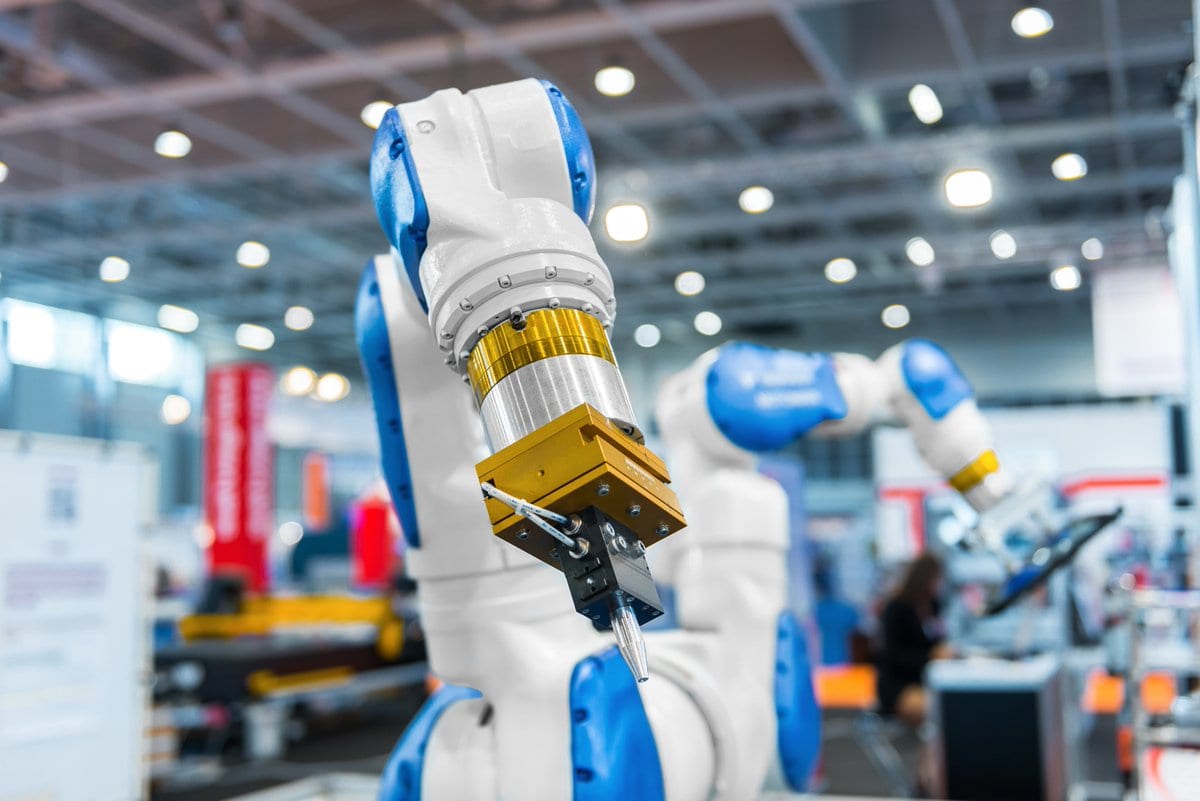The industrial internet of things (IIoT), with all its potential, is on the way to bring innovation shortly with wide-ranging smart appliances, including robots, vehicle machinery, connected sensors, and tracking & remote systems. Industries have been getting transformed and benefitted with IIoT as it is driving higher levels of productivity, improving performances, and efficiency. IIoT has influenced sectors, including manufacturing, transportation, energy, aviation, and logistics, to be advanced and prolific. The industries are becoming capable of providing better products and services to people with the use of amplified data speed and accessibility. The major advantage of IIoT is its connectivity and scalability that have strengthened the business strategies and decisions by sharing information and resources.
The IIoT is demonstrating to be the best for energy efficiency as it can make the manufacturing leaders aware regarding additional usage of the energy; This leads to saving irrelevant energy consumption. On the other hand, predictive maintenance (PdM) is another value-added feature provided by IIoT. PdM aims to predict if the machine would go through any failure, and then it maintains and prevents the failure from occurring. PdM has privileged the industries by minimizing production hours lost due to maintenance, lessening the time required for maintenance, and eliminating the cost for supplies and spare parts. Furthermore, IIoT has played a significant role in advancing supply chain logistics and provide real-time data, which helps manufacturers and end-users to track and trace the products easily and provides every information in detail whenever required. Since IIoT is holding up several sectors, various industries are taking initiatives to adopt IIoT based platforms.
According to a report published by Allied Market Research, the global industrial internet of thing market is expected to reach $197 billion at a CAGR of 7.5% by 2023; This is due to technological advancements, less operational cost, and surge in acceptance of IoT in industries. Recently, Mafchu has integrated its IoT platform with an i-ALERT sensor and AI web platform by ITT Inc. On the other hand, ValGenesis partners with T-Systems to bring digitization and automation in the Pharma industry with IoT. Following are some of the latest activities in the industry:
Machfu to Integrate Its Internet of Things Gateway Platform With I-Alert Sensor and AI Web Platform:
With the help of IIoT, two companies in collaboration are enhancing technology to predict machine related problems before its occurrence. Machfu, an IIoT technology firm, recently proclaimed to merge its internet of things gateway platform with i-ALERT sensor and AI web platform by ITT Inc., an American worldwide manufacturing company. The i-ALERT Gateway provides a protected connection among the i-ALERT sensors and i-ALERT AI platform. The combination will offer convenient predictive maintenance. John Geiger, the V.P. Business Development at Machfu, stated that the companies together could aid the industrial customers to enlarge the machine’s life anticipation and predict failures earlier.
Furthermore, the i-ALERT sensors can track tri-axal kurtosis, tri-axial vibration, and temperature with continuous functioning without any break. Additionally, the sensors can wirelessly synchronize data with the i-ALERT mobile app through Bluetooth V4 enabled devices. Moreover, after every five minutes, the equipment is checked, and an alarm is functioned for mismanaging and abnormal operational conditions.
According to Dan Kernan, the Executive Director of Aftermarket Technology and Solutions at ITT, the integration of the Gateway edge platform with i-ALERT sensors allows the data collective activities to be automated. Furthermore, he added that their customers can now flexibly scale the condition monitoring by their mobile phone or continuous remote monitoring via i-ALERT Gateway.
ValGenesis Associates With T-Systems to Enable Digitization and Automation With IoT in Pharma Industry:
On the other hand, a company initiates to transform pharmaceuticals and drug manufacturing industry with IIoT. ValGenesis, Inc., a leading provider of Enterprise Validation Lifecycle Management solutions, has recently declared its partnership with T-Systems North America to aid and transform the pharmaceutical and biotech manufacturing. IoT in the pharma industry intends to increase transparency in drug production, logistics, and storage with the help of sensors that can observe environmental changes such as temperature, radiations, humidity, and other changes. However, the transformation requires to automate the procedures of data collection via monitoring devices. Presently, the operators are required to log the data into VLMS systems. Still, an IoT interface can be helpful to collect uninterrupted computerized collection and monitoring of data with alerts for inappropriate functioning. Furthermore, the ValGenesis plans its IoT enabled ValGenesis VLMS systems to efficiently provide the assurance of data integrity, enable high production capability, and track compliance to recognized procedures. Moreover, the company is still working on developing the use of IoT for the supply chain and other legalized manufacturing procedures.
Industries are mainly accepting IoT-enabled technologies due to their advantages and increased security. Where on the one hand, IIoT is superior with better intelligence; on the other hand, it has improved the potential of different technologies resulting in high productivity and management. Though IIoT is in its infancy, its boundaries for development are yet too far to reach. The growing investments and interests for IoT by various industries will lead the future towards development. Furthermore, the easily accessible network and innovative sensors are likely to surge the interest more in the future.
However, the rise in predictive maintenance and adoption of a cloud-based deployment model have almost downplayed the factor and has created multiple opportunities for the key players in the industry.
To conclude, we can state that the industrial Internet of Things market is growing at a rocket’s pace and is going to thrive yet more in the years to come. The fact that the incorporation of smart sensors into industrial machines triggered manufacturers to curtail down the operational cost, at least by 50%, has created even more prospects for the market.


